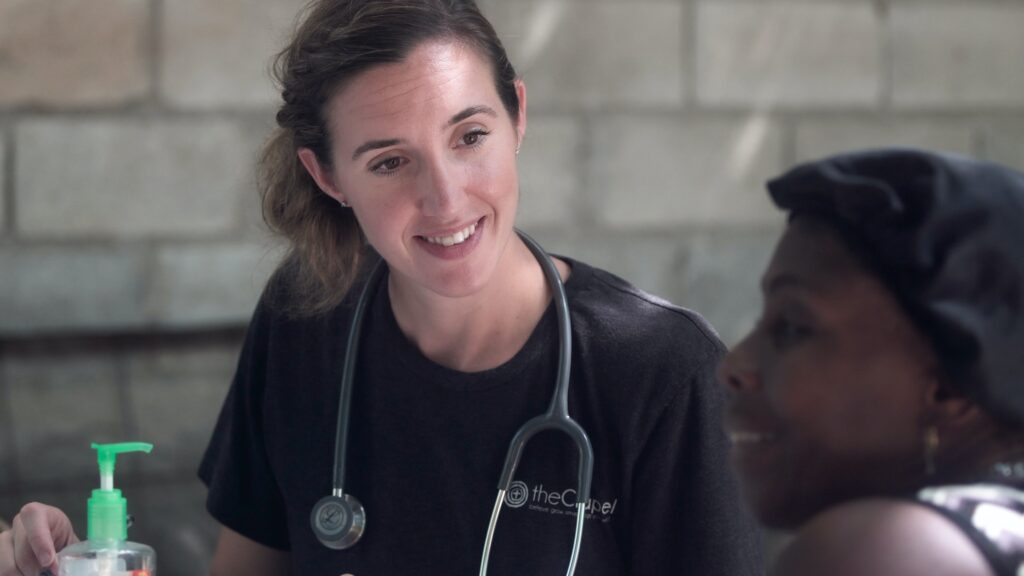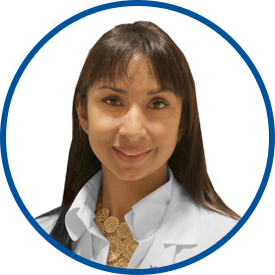Why a focus on women’s health is especially important now
It’s National Women’s Health Week and time to prioritize managing your health if you identify as female.
National Women’s Health Week (NWHW), May 9-15, serves as a reminder for women to make their health a priority and take care of themselves. Women carry silent burdens and are taking on more than ever right now because of the pandemic. Between home schooling, working, home life and many other external pressures – when is there time to also manage your health? Queer Forty spoke to Dr. Seema Sharma, OB-GYN at Westmed Medical Group located in Westchester, to ask her advice.
Do you believe health disparities exist for sexual minority women as indicated by some reports, and if so, what might be the underlying causes of this?
Dr. Sharma: I believe health disparities do exist for sexual minority women as compared to heterosexual women.
Research does show that LGBTQIA women may be at higher risk for certain malignancies such as breast, ovarian, and uterine cancer.
Dr. Seema Sharma
The increased likelihood of breast and ovarian cancer stems from nulliparity, or never having given birth. Additionally, research shows that LGBTQIA patients may be less likely to obtain preventative health care screenings due to fear of discrimination from their providers, which may lead to a further gaps in this population’s overall health outcomes.
Blood clots, heart disease and strokes have emerged as little talked about problems for women as they age whereas the focus for women is often on reproductive-linked health. Would that be correct?
Dr. Sharma: Although reproductive health becomes more of a focus for some LGBTQIA patients as they age, it is important to identify whether a patient might be at risk for other serious health conditions – including heart disease. Recent data suggests that this community may have an elevated risk for experiencing poor cardiovascular health versus heterosexuals, which may be linked to risk factors such as increased glycemic index and tobacco use. For this reason, it is incredibly important for LGBTQIA individuals to remain vigilant about preventive screenings, as these are opportunities for your care team to identify early signs/symptoms of heart disease. I tell my patients that heart disease and diabetes are silent diseases. A patient may not notice they have it until there is a bigger problem.
With gynecological health, however, what are some of the signs and symptoms of uterine or ovarian cancer that might be confused with something else?
Dr. Sharma: Uterine cancer is typically preceded by abnormalities in the menstrual cycle. This could manifest as midcycle bleeding, prolonged bleeding, or changes to the menstrual flow. Ovarian cancer, unfortunately, may be completely asymptomatic until advanced. Typical symptoms of ovarian cancer are pelvic fullness, sometimes pelvic pain, and abdominal bloating. These symptoms are often mistaken for gastrointestinal (GI) maladies.
With many of us staying at home and avoiding checkups due to the pandemic, what is a simple but effective way to conduct an at-home self-check for breast abnormalities?
Dr. Sharma: I think self-breast examinations are a simple intervention that should be encouraged. As mentioned before, LGBTQIA patients may be at a higher than average risk for breast cancer and therefore it is important for women to be aware of how their breasts normally look and feel. I recommend looking at your breasts in the mirror, typically at the tail end of your period. You are looking for skin changes, any dimpling/puckering of the skin and nipple inversion or discharge. Then, with one hand over your head, use the opposite hand to feel for any masses. Please report any changes to your health care provider immediately.
There are so many theories about women’s supplements and vitamins but are there any that are relevant or essential for women over 40?
Dr. Sharma: I encourage Omega-3 supplements in women of all ages. B-complex, folic acid, and vitamin D supplements for vegetarians/vegans. Sunscreen is also an important part of skin cancer prevention.

As women age, what is a positive mindset for getting ahead of the health issues that will inevitably arise as we get older?
Dr. Sharma: I believe a positive mindset is early intervention. So often, patients don’t come in for checkups because they are afraid of what will be found. I think it is important to teach patients that fear will delay diagnosis. Let’s take care of things early before they become bigger problems.
Many LGBTQ+ women have experienced discrimination and ignorance from medical professionals regarding identity, sexual partners and history, and therefore tend to avoid checkups. What is the best way for minority women to locate the healthcare professional for them?
Dr. Sharma: I think the best way for LGBTQIA to identify the right provider for them is by word of mouth. Of course, publications like Queer Forty can also be very helpful. You can also search online for databases of LGBTQIA welcoming healthcare providers.
In your practice, do you have any transgender and gender nonconforming patients and if so, what do you see as their most pressing needs from the medical profession?
Dr. Sharma: Westmed doctors all see LGBTQIA patients and work hard to create a safe, communicative and open environment for all of our patients. I think their most pressing need from a medical provider is understanding and communication. Transgender patients should be reminded that although they have transitioned, there are still some health conditions that they may be more prone to biologically than if they had been born the gender they have transitioned to. Also, consideration needs to be given to the potential adverse effects of some of the hormones used in the transitioning process. I think it is important as a provider to understand the health risks associated with this growing community. These patients are at higher risk for many hazards, from mental health, substance abuse, to cardiovascular disease, and malignancy. I think the barriers to access need to be addressed.

ABOUT DR. SHARMA
Dr. Sharma is board-certified, and she is a Fellow of the American College of Obstetrics and Gynecology. She received her medical degree from Sri Devaraj Urs Medical College, India. After completing a family medicine internship at Southern Regional Area Health Education Center in Fayetteville, NC, Dr. Sharma did a residency in obstetrics and gynecology at Thomas Jefferson University Hospital in Philadelphia. Dr. Sharma joined Westmed Medical Group in July 2007. Her special interests include adolescent health and minimally invasive surgery. She has had training in robotic surgery. She is affiliated with Greenwich Hospital and The Rye Ambulatory Surgery Center.






